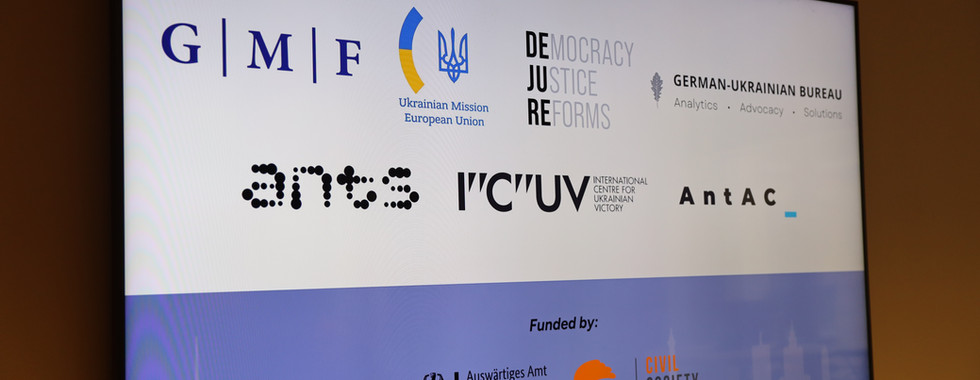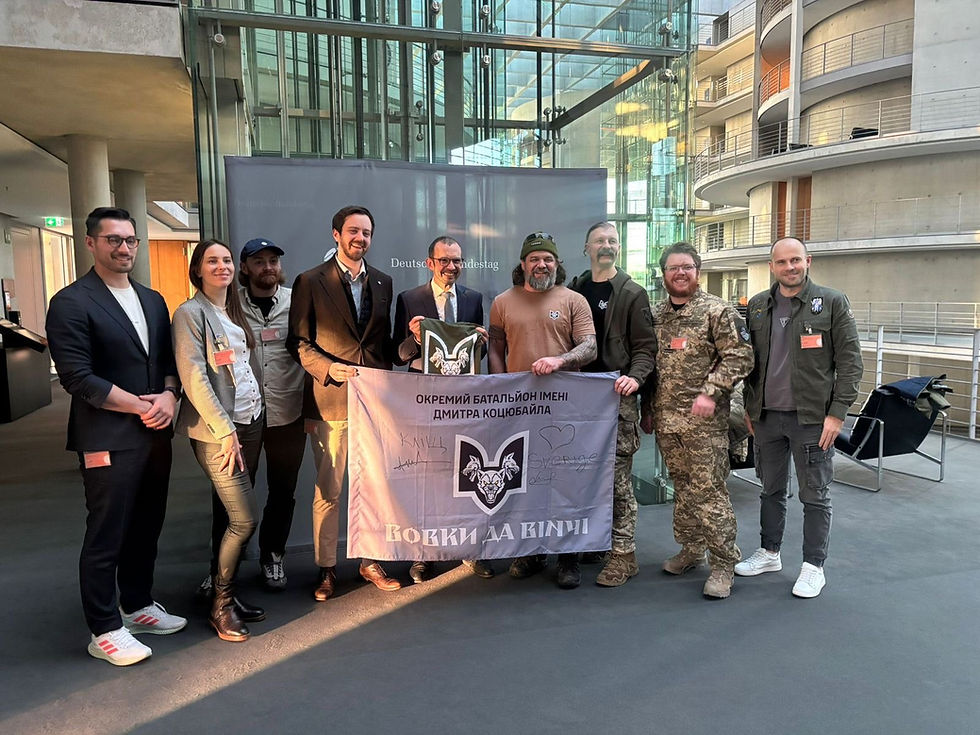Brussels Conversations on Ukraine’s EU Accession: Challenges, Next Steps, and the Need for Continued Reform
- iborzilo
- Oct 16, 2025
- 2 min read
On September 15, the German-Ukrainian Bureau (DUB) co-hosted two high-level conversations in Brussels on Ukraine’s EU accession process and the way forward.
In the morning, DUB’s CEO Mattia Nelles moderated an off-the-record diplomatic breakfast featuring Taras Kachka, Deputy Prime Minister of Ukraine, and Ivanna Klympush-Tsintsadze, Chair of the Ukrainian Parliament’s Committee on EU Integration, alongside leading representatives of Ukrainian civil society.
The in-depth exchange brought together senior advisors and experts from the European Council, European Commission, and European Parliament, as well as diplomats from EU member state missions and leading Brussels-based think tanks.
While Ukraine has successfully completed the first technical phase of the accession process — the screening — the opening of negotiation clusters remains politically blocked by Hungary. Participants discussed why this next step is essential to provide the Ukrainian government, parliament, and civil society with a structured framework to advance key reforms and maintain reform momentum.
The second session, hosted at the German Marshall Fund of the United States (GMF) office, broadened the conversation to include more Brussels-based experts and observers. Ukrainian speakers underlined that, despite significant challenges, the country remains determined to move forward with reforms and to demonstrate readiness for EU membership.
Feedback from Brussels insiders, however, was more cautious: few expect the Hungarian veto on cluster openings to be lifted soon. This means Ukraine must continue advancing its reform agenda independently, to avoid losing valuable time in the accession process.
On a positive note, both the European Commission and many in the Council of the EU reaffirmed their commitment to supporting Ukraine in the enormous task of aligning its legislation and governance practices with EU standards — even as the country continues to defend itself against Russia’s full-scale war of aggression.
We thank our friends and partners from GMF, AntAC, ANTS, ICUV, and DeJuRe for joining forces, and the Ukrainian Mission to the EU for their support.
These events are the part of the project “Continuing Successful Anti-Corruption (COSAC) Reform Initiative”, funded by the Federal Foreign Office (Auswärtiges Amt) and implemented by the German-Ukrainian Bureau (DUB) in cooperation with the Ukrainian NGO Center for Democratic Transformation “Mezha” in the EU and Ukraine.
Photos by GMF























Comments